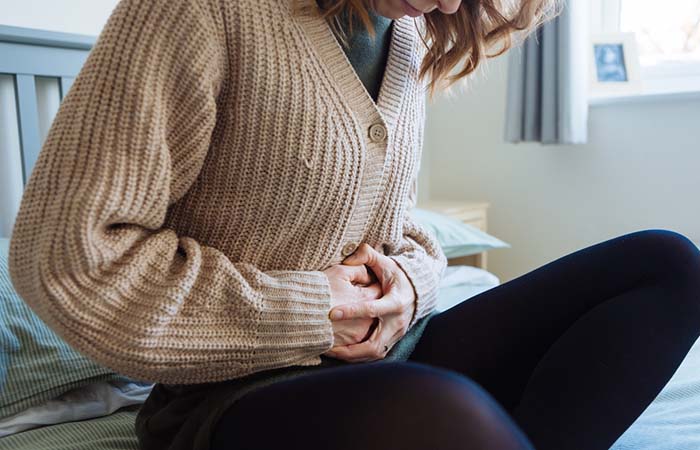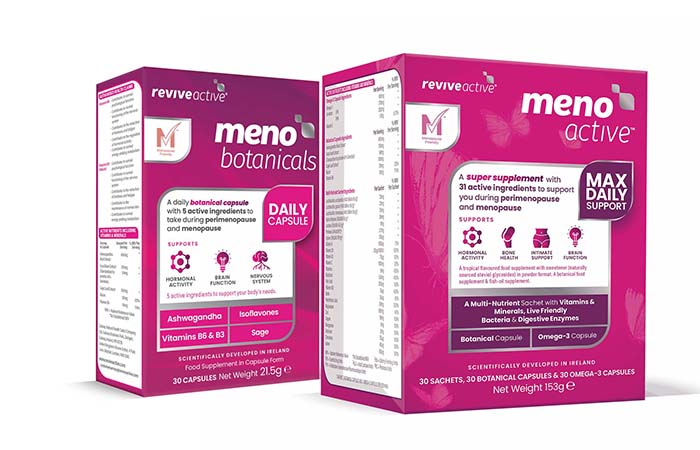How pharmacies can empower women to make informed health decisions
In OTC
Follow this topic
Bookmark
Record learning outcomes
Pharmacies play a vital role in promoting women’s health by offering personalised care, medication management, and guidance on various health issues, empowering women to make informed decisions for their overall well‑being
In January 2025, the Royal College of Obstetricians and Gynaecologists (RCOG) urged the government to take the health of 51 per cent of the population into account when considering the upcoming Spending Review, the NHS 10-Year Plan and the future of the Women’s Health Strategy. This followed the publication of the government’s 2025 mandate to NHS England and NHS Operational Planning Guidance 2025-26, which contains no reference to improving women’s health.
“Despite the RCOG and other women’s health organisations repeatedly calling for women’s health hubs to be prioritised, the government has removed the mandate for them to be created, and the funding to ensure they remain open,” says Dr Ranee Thakar, president of the RCOG.
She adds: “The hub model increases the services women can access in the community and the prevention of poor health outcomes. They also play an important role in delivering improved efficiency across the system, ultimately cutting waiting lists.
"Crucially, the government is ignoring its own cost-benefit analysis, which clearly shows an economic benefit in establishing women’s health hubs.”
Some of the newer pharmacy services focus on women’s health concerns, such as the Pharmacy Contraception Service, the urinary tract infection (UTI) care pathway in Pharmacy First and the launch of the NHS Hormone Replacement Therapy Prescription Prepayment Certificate (HRT PPC).
In August 2024, Community Pharmacy England listed an Emergency Contraception Service and the addition of LARC to the Pharmacy Contraception Service as high priority goals – and a funded menopause advice service (including the supply of HRT) as a medium-term goal.
Professor Claire Anderson, president of the Royal Pharmaceutical Society (RPS), says that community pharmacies are often the most accessible healthcare settings, offering women professional, convenient and expert advice.
“They provide a confidential space for women to discuss their concerns and ensure support, treatment and referrals where appropriate,” she says. “Expanding pharmacy-led contraception and menopause services would improve access, ease pressure on GPs and ensure timely support for women.
"Community pharmacies already provide safe, convenient contraception services – national commissioning would maximise their impact and help reduce health inequalities.”
Meno Botanicals capsules support the perimenopause and menopause. Meno Active is a 360o approach to menopause with its 3-in-1 delivery solution; multi-nutrient sachet, botanicals capsule and high potency Omega-3 capsule supporting transitional symptoms plus brain and heart support. Both products are MTick menopause friendly accredited.
Revive Active: 0800 901 2152
Pharmacy services
The Pharmacy Contraception Service was first launched in April 2023 and then expanded in December 2023. It enables pharmacy teams to initiate the supply of oral contraceptives for the first time or after a pill-free break, or to continue the supply of oral contraceptives originally initiated by GPs, pharmacies or sexual health clinics. In both cases, the oral contraceptives are supplied using Patient Group Directives (PGDs) to support the review and supply process.
Pharmacy First’s UTI care pathway is bringing more women into the pharmacy for advice and products, not only in relation to cystitis symptoms but other women’s health issues as well.
“Pharmacy First has enabled women to access timely, expert care for UTIs, alleviating pressure on GPs and A&E,” says Anderson. “Women are actively seeking advice from pharmacists on a wide range of health issues, including contraception, menstrual health and the menopause.
"This highlights the critical role of pharmacists as a first point of contact, raises awareness of symptoms and actively supports women to make informed decisions about their own health.”
Jenna Cockburn, pharmacy manager and independent prescriber at Bridge of Allan Pharmacy in Stirling, Scotland, says that women tend to ask her most often about cystitis, thrush and contraception in terms of women’s healthcare requirements.
“But often we will end up discussing period problems and menopause in medication counselling with a patient,” she adds. “We are approached by women aged 16 to 65 – perhaps marginally more patients within the 20 to 40s category for cystitis.
"More medication enquiries are also seen in women over 50 beginning their HRT journey and navigating the process of finding the right medication for them.”
Dr Beena Khan is the founder and prescribing pharmacist running a menopause clinic and multidisciplinary private community pharmacy services at One Stop Clinic Leigh in Leigh-on-Sea. The private women’s health services include UTI diagnosis and treatment, hormonal balance and contraception.
“Community pharmacists are still trying to get the word out that they can prescribe for UTIs on the NHS, even though this is available through Pharmacy First,” she says. “We find that many women prefer to see a GP for a UTI, rather than a pharmacist. It’s mainly GPs leading our private women’s health clinic, which is for any age and is open and non-judgemental.
"Not all women want to discuss contraception or other general health issues with a pharmacist. Most come in for blood pressure checks, weight management and other services that aren’t usually accessed easily through an NHS GP surgery.”
Future pharmacy plans
In December 2024, the RPS joined the Faculty of Sexual and Reproductive Healthcare (FSRH) to call for a nationally commissioned service to provide free oral emergency contraception through community pharmacies in England.
The FSRH believes that free oral emergency contraception should be available alongside appropriate and accurate information in all UK community pharmacies.
Emergency contraception is free for young people under PGDs in some areas, but inconsistencies and age range eligibilities across areas affect availability.
A nationally commissioned emergency contraception pharmacy service in England would reduce health inequalities and ease pressure on GP surgeries and sexual health clinics so that these could focus on urgent or more complex sexual health issues. The service could be part of the Pharmacy Contraception Service.
“We strongly support a nationally commissioned emergency contraception service in England to address the current postcode lottery in access,” says Anderson. “Only around half of community pharmacies offer free emergency contraception, leaving many women without consistent, equitable care.
"Women in Scotland and Wales have benefited from national commissioning for a year, and England must follow suit.”
In February 2025, the Department of Health and Social Care issued a list of medical conditions and categories where it is encouraging more reclassification applications to the Medicines and Healthcare products Regulatory Agency (MHRA). The list includes “conditions that affect women’s health” – heavy periods (menorrhagia), intimate fungal skin infections (e.g. thrush) and UTI (non-antibiotic treatment).
The reclassification of medicines from POM to P within these categories would encourage more consultations, enabling women to be advised and treated by the pharmacy team.
Menopause advice
An article published in the Post-reproductive Health Journal in March 2024 stated that community pharmacies are already well-placed to support and educate women about the menopause, with pharmacy products and lifestyle changes.
Community pharmacists can now supply some vaginal oestrogen (HRT) over the counter without a prescription to treat vaginal atrophy, which affects one in two postmenopausal women and causes dryness, irritation, burning and painful sex.
Making more HRT products available over the pharmacy counter will hopefully encourage more women to seek pharmacy advice on menopause management rather than waiting for a GP appointment. Although there is currently no commissioned pharmacy menopause service, some
community pharmacies have recognised the importance of individualised menopause advice and support through pharmacies and offer a private menopause service with specially trained staff.
“I would refer a woman to our in-house menopause service if she is at the beginning of her journey and has not yet spoken with her GP,” says Jenna Cockburn. “This way, she can lead and guide her consultation. I would also refer if she was already on HRT and had not had adequate symptom control or had severe symptoms.”
Rebecca Wicks, community pharmacist and independent prescriber, runs the private menopause service at Right Medicine Pharmacy in Scotland. “My training in the menopause enables me to look at certain symptoms with a different lens,” she says. “For example, if a woman needs antibiotics two or three times a year for a UTI, this could prompt a discussion about the menopause and the potential differential diagnosis of vaginal atrophy.
"This knowledge is also worth keeping in mind for this patient group when they present with other lesser-known menopause-related symptoms such as dry eyes, itchy skin and tinnitus.”
Anderson says that pharmacies should make sure they can offer a supportive, confidential environment for sensitive health discussions. “Many pharmacies offer private consultation rooms, ensuring women can speak freely,” she says.
“Staff training in compassionate, non-judgemental care, along with clear service signposting, counter discretion and inclusive communication, helps create a welcoming space for women’s health concerns.”


